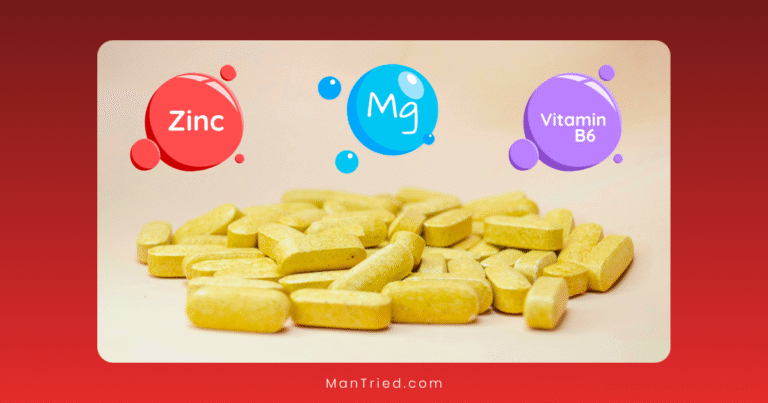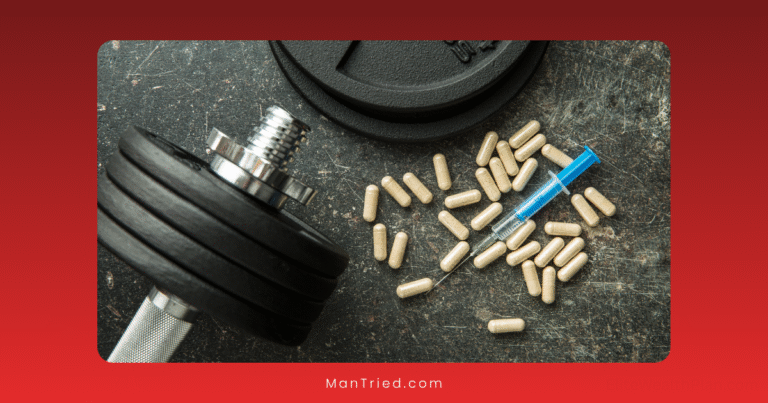Micronutrient Testing: Identifying Your Specific Deficiencies for Sexual Health

In a world where approximately 92% of Americans suffer from at least one mineral or vitamin deficiency, understanding your body’s unique nutritional needs has never been more important—especially when it comes to your sexual health. While many of us focus on exercise, stress management, and general wellness, we often overlook the microscopic nutrients that power our sexual function and vitality.
The Hidden Connection Between Micronutrients and Sexual Health
Sexual health issues—from low libido to erectile dysfunction—are frequently treated with medications that address symptoms rather than root causes. What many don’t realize is that specific micronutrient deficiencies may be silently undermining your sexual wellness.
“Micronutrient deficiencies can lead to stress, fatigue, depression, and concentration issues,” explains the team at Prosperity Health. “Restoring micronutrient levels can boost the immune system and improve sexual performance.”
But how do you know which specific nutrients your body lacks? This is where micronutrient testing comes in.
What Is Micronutrient Testing?
Micronutrient testing is a specialized blood test that measures your body’s functional ability to absorb and utilize essential vitamins, minerals, antioxidants, and other nutrients over time. Unlike standard blood tests that only show current levels, comprehensive micronutrient testing can reveal your nutritional status over the past several months.
According to Quest Diagnostics, which recently introduced 13 new blood tests for micronutrient deficiencies, these tests can identify imbalances caused by:
- Dietary restrictions
- Prescription medications
- Chronic health conditions
- Poor absorption issues
Key Micronutrients That Impact Sexual Health
Research has identified several critical micronutrients that directly influence sexual function. Let’s explore the most important ones:
1. Vitamin D: The Hormone Optimizer
Often called the “sunshine vitamin,” vitamin D functions more like a hormone in the body. Studies show that men with vitamin D levels below 20 ng/mL experience significantly more severe erectile dysfunction.
- How it works: Supports testosterone production and improves blood vessel function
- Optimal levels: 30-40 ng/mL for sexual health
- Deficiency rate: Approximately 42% of Americans are vitamin D deficient
Research published in the Journal of Clinical Endocrinology demonstrates that vitamin D deficiency is strongly linked to lower testosterone levels, which directly impacts libido and sexual function in both men and women.
2. Zinc: The Sexual Powerhouse
Zinc is perhaps the most critical mineral for sexual health, playing a vital role in hormone production and reproductive function.
- How it works: Maintains testosterone levels, supports prostate health, and is essential for sperm production
- Recommended intake: 11mg daily for men, 8mg for women
- Deficiency impact: A zinc deficiency can cause a 75% drop in testosterone levels within six months
“About half of Americans do not get enough zinc,” reports the Center for Men’s Health Research Institute, highlighting why this deficiency is so common.
3. Magnesium: The Testosterone Protector
Magnesium is involved in over 300 biochemical reactions in the body, including those related to sexual health.
- How it works: Keeps testosterone bioavailable in the bloodstream and supports muscle function
- Recommended intake: 400-420mg daily for men, 310-360mg for women
- Research finding: Men taking 450mg of magnesium daily increased testosterone levels by 24% in just four weeks according to research published in Biological Trace Element Research
4. B Vitamins: The Energy Providers
B vitamins, particularly B3 (niacin), B9 (folate), and B12, play crucial roles in energy production, blood flow, and hormone regulation.
- How they work: Support nitric oxide production (essential for blood flow to genital tissues) and energy metabolism
- Deficiency signs: Fatigue, weakness, and poor stress response—all of which impact sexual function
The Testing Process: What to Expect
Modern micronutrient testing has become increasingly accessible, with options ranging from lab-based tests to at-home collection kits.
Professional Lab Testing
Companies like SpectraCell offer comprehensive panels that test for up to 31 different micronutrients. These tests typically:
- Require a blood draw at a lab facility
- Analyze your cells’ functional ability to utilize nutrients
- Provide detailed reports showing deficiencies and recommendations
- Cost between $200-$400 (sometimes covered by insurance)
At-Home Testing Options
For those preferring convenience, companies like LetsGetChecked offer at-home micronutrient tests that:
- Allow you to collect a small blood sample at home
- Test for key nutrients like Vitamin D, B12, E, Copper, and Selenium
- Provide results within 2-5 days
- Include personalized insights and recommendations
- Cost approximately $99-$199
Specialized Sexual Health Panels
Some labs now offer specialized panels focused specifically on sexual health biomarkers, testing for:
- Hormones (testosterone, estrogen, DHEA)
- Nutrients that support hormone production
- Inflammatory markers that may impact sexual function
- Metabolic factors affecting energy and performance
From Testing to Treatment: Creating Your Personalized Plan
Once you’ve identified your specific deficiencies, you can work with healthcare providers to create a targeted supplementation and dietary plan.
1. Prioritize Food First
Before turning to supplements, focus on nutrient-dense foods:
- For Vitamin D: Fatty fish, egg yolks, and fortified foods
- For Zinc: Oysters, red meat, pumpkin seeds, and lentils
- For Magnesium: Dark leafy greens, nuts, seeds, and whole grains
- For B Vitamins: Whole grains, meat, eggs, and leafy greens
2. Strategic Supplementation
For identified deficiencies, targeted supplementation may be necessary:
- Vitamin D: 1,500-2,000 IU daily for most adults (higher doses may be recommended for severe deficiencies)
- Zinc: 20-40mg daily for deficient individuals
- Magnesium: 300-400mg daily, preferably as magnesium glycinate for better absorption
- B Complex: A high-quality B complex that includes methylated forms for better utilization
3. Address Absorption Issues
Sometimes the problem isn’t intake but absorption. Your test results may reveal that you need to:
- Support digestive health with probiotics or digestive enzymes
- Address underlying conditions that affect nutrient absorption
- Adjust medication schedules that might interfere with nutrient uptake
Real Results: What to Expect
When you correct micronutrient deficiencies related to sexual health, results typically follow a timeline:
- 1-2 weeks: Improved energy levels and mood
- 2-4 weeks: Enhanced stress response and sleep quality
- 4-8 weeks: Noticeable improvements in libido and sexual response
- 8-12 weeks: Significant improvements in overall sexual function and satisfaction
Beyond Sexual Health: The Whole-Body Benefits
The beauty of addressing micronutrient deficiencies is that the benefits extend far beyond sexual health:
- Improved immune function: Essential for overall health and vitality
- Enhanced cognitive performance: Sharper thinking and better focus
- Better sleep quality: Supporting hormone balance and recovery
- Increased energy: Powering all aspects of your life
- Reduced inflammation: Supporting long-term health and disease prevention
Is Micronutrient Testing Right for You?
You might particularly benefit from micronutrient testing if you:
- Experience unexplained sexual health issues despite a healthy lifestyle
- Follow restrictive diets (vegan, vegetarian, keto, etc.)
- Take medications that may deplete nutrients
- Have digestive disorders that affect nutrient absorption
- Are over 50 (absorption naturally decreases with age)
- Have chronic stress (which increases nutrient demands)
The Bottom Line
In a healthcare landscape that often treats symptoms rather than causes, micronutrient testing offers a refreshing approach—identifying the specific biochemical imbalances that may be undermining your sexual health.
By understanding and addressing your unique nutritional needs, you’re not just treating sexual health symptoms—you’re optimizing your body’s natural capacity for sexual wellness from the cellular level up.
Remember, sexual health isn’t separate from overall health—it’s an expression of it. When your body has all the micronutrients it needs to function optimally, improved sexual health naturally follows.
Ready to discover your personal micronutrient profile? Talk to your healthcare provider about testing options, or explore the growing number of reputable at-home testing services that can help you take this important step toward optimized sexual health and overall wellness.






